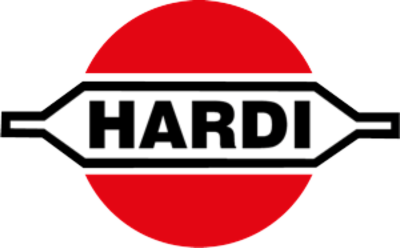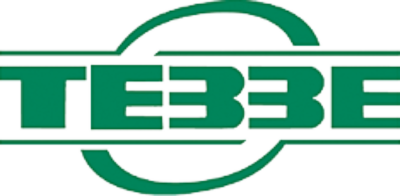Condiciones generales
I. General information
The following terms of delivery apply to all contracts, deliveries and other services, including paid and free consulting services, unless they are modified or excluded with the express written consent of the seller. Consumers within the meaning of these terms and conditions are natural persons with whom a business relationship is entered into without any commercial or self-employed professional activity being attributable to them. Entrepreneurs within the meaning of these terms and conditions are natural or legal persons or partnerships with legal capacity with whom a business relationship is entered into and who act in the exercise of a commercial or self-employed professional activity. Buyers within the meaning of these terms and conditions are both consumers and entrepreneurs. If the buyer does not want these terms and conditions to apply against him, he must inform us immediately in writing. Deviating general terms and conditions of the buyer do not apply. Buyer’s terms and conditions shall not become part of the contract even if the Seller does not object to them again and renders the contractually owed delivery/service without reservation. Agreements deviating from these conditions shall be included in the written contract.
II. offer and scope of delivery
1. Offers of the seller are always subject to confirmation. The documents belonging to the offer such as illustrations, drawings, weights and dimensions are only approximate unless they are expressly designated as binding. The changes are inappropriate and can no longer be accepted by the purchaser if they go beyond what is customary in the trade. Services and operating costs are stated as average values.
2. With an order, the buyer declares bindingly that he wants to purchase the ordered goods. The seller is entitled to accept the contractual offer contained in the order within two weeks after receipt.
3. If the consumer orders the goods electronically, we will immediately confirm receipt of the order. The confirmation of receipt does not yet constitute a binding acceptance of the order.
4. If the consumer orders the goods electronically, the text of the contract will be stored by us and sent to the customer by e-mail together with these GTC on request.
III Price and payment
1. Unless otherwise agreed, prices are ex Seller’s warehouse or, in the case of dispatch from the manufacturer’s works, ex works, excluding packaging. The prices are exclusive of VAT. If delivery is to take place more than 4 months after conclusion of the contract, the seller is entitled to demand negotiations on a new price setting in the event of price increases by his suppliers or unexpected increases in wage and transport costs. The seller is only bound to the agreed price for the agreed delivery period – however, at least 4 months. Additional expenses incurred by the Seller as a result of the Buyer’s default in acceptance may be reimbursed by the Buyer.
2. The Buyer undertakes to pay 14 days after delivery and receipt of the invoice. After expiry of this period, the buyer is in default of payment. The rights of retention to which the purchaser is entitled under § 320 BGB are not affected by this. Discounts are only valid if the buyer is not in arrears with the payment of earlier deliveries.
3. In the case of participation in the direct debit procedure, the due date in the invoice is regarded as advance information (pre-notification) within the meaning of the SEPA provisions.
The reduction of the notification period for advance information to 5 calendar days is deemed to have been agreed.
The client reference of the buyer consists of the customer number used by the seller and an appended serial number.
4. During the period of default, the consumer shall pay interest on the debt at a rate of 5% above the base interest rate.
5. During the period of default, the entrepreneur shall pay interest on the debt at a rate of 8% above the base interest rate.
6. We reserve the right to prove and assert a higher damage caused by default against the buyer.
7. If the buyer is in arrears with payments – with agreement of partial payments with 2 consecutive instalments – the seller can withdraw from the contract after setting a reasonable period of grace and claim damages for non-performance.
8. If the seller demands compensation for non-performance of the purchase contract, this amounts to 15 % of the purchase price.
The amount of damage is to be set higher or lower if the seller proves a higher or the buyer a lower damage.
9. Offsetting against any counterclaims of the buyer which are disputed by the seller or which have not become res judicata is not permitted. The buyer can only assert a right of retention if it is based on claims from the purchase contract. If a notice of defect is asserted, payments of the buyer may be withheld to an extent that is in reasonable proportion to the defects that have occurred.10. Payments may only be made to employees of the seller if they have a valid power of collection.
IV. Delivery periods and delay
1. Delivery periods and dates are only approximate unless the seller has expressly given a written commitment as binding. The delivery period begins, if necessary, on the day the written purchase contract is signed, but not before the documents, approvals, releases to be provided by the buyer and before receipt of an agreed down payment have been received.
2. The contract is concluded subject to the correct and timely self-supply by our suppliers. This only applies in the event that we are not responsible for the non-delivery, in particular if a congruent hedging transaction is concluded with the supplier. The buyer will be informed immediately about the non-availability of the service. The consideration will be refunded immediately.
3. The delivery period shall be deemed to have been met if the delivery item has left the Seller’s warehouse or, in the case of dispatch ex works, the manufacturer’s works or readiness for dispatch has been notified before expiry of the delivery period.
4. The delivery period shall be extended appropriately in the event of measures within the scope of legal industrial disputes, in particular strikes and lock-outs, as well as in the event of unforeseen obstacles which are beyond the control of the seller or his vicarious agents, insofar as such obstacles can be proven to have an influence on the delivery of the sold item.
5. The same applies if the seller for his part is not supplied in time. The seller is entitled to withdraw from the contract if the manufacturer does not supply him.
This does not apply, however, if the seller is responsible for the non-delivery (e.g. default of payment).
6. Compliance with the delivery period presupposes the fulfilment of the buyer’s contractual obligations.
7. The Seller shall not be liable for delayed or omitted (impossibility) deliveries due to the fault of his supplier – with the exception of selection or monitoring fault. Sentence 1 does not apply if the relationship between seller and buyer is determined by the law on contracts for work and services.
In any case, the seller is obliged to hold the buyer harmless if the buyer cannot fully enforce the claims assigned to him against the supplier.
V. Transfer of risk and transport
1. Unless otherwise agreed, the route and means of dispatch shall be left to the choice of the seller.
If the buyer is an entrepreneur, the risk of accidental loss and accidental deterioration of the goods shall pass to the buyer upon handover to the buyer, in the case of mail order purchase upon handover of the goods to the forwarding agent or carrier, at the latest, however, upon leaving the warehouse or, in the case of direct shipment ex works, upon leaving the factory. This also applies if partial deliveries are made or if the seller has taken over further services.
3. The same applies if the buyer is in default of acceptance.
4. Delivered items are to be accepted by the buyer, even if they show insignificant defects, without prejudice to the rights under Section VII (notification of defects and liability for defects).
5. Partial deliveries are permissible.
VI Retention of title
1. In the case of contracts with consumers, we reserve title to the goods until full payment of the purchase price.
In the case of contracts with entrepreneurs, we reserve title to the goods until full settlement of all claims arising from an ongoing business relationship.
2 The buyer is obliged to secure the object of purchase against third-party intervention and to insure it immediately against fire”for third party account” and to prove this upon request; otherwise the seller is entitled to insure it himself at the buyer’s expense. The buyer undertakes to assign any claims for fire damage to the buyer.
3. The buyer may neither pledge the object of purchase nor assign it as security without the seller’s consent. The buyer is obliged to inform the seller immediately in writing in the event of seizures or other interventions by third parties, so that the seller can bring an action pursuant to § 771 ZPO (Code of Civil Procedure).
If the third party is not in a position to reimburse the Seller for the judicial and extrajudicial costs of an action pursuant to § 771 ZPO, the Buyer is obliged to compensate the costs.
4. The entrepreneur is entitled to resell the goods in the ordinary course of business. However, he hereby assigns to the Seller all claims in the amount of the Seller’s final invoice amount (including value added tax) which accrue to him against his customers or third parties from the resale, irrespective of whether the object of purchase has been resold without or after processing. The buyer is authorised to collect these claims even after assignment.
The authority of the seller to collect the claims himself remains unaffected by this, but the seller undertakes not to collect the claims as long as the buyer duly fulfils his payment obligations. Otherwise, the Seller may demand that the Buyer disclose the claims assigned to it and their debtors, provide all information required for collection, hand over the associated documents and notify the debtors of the assignment.
5. If a vehicle registration document has been issued for the object of purchase, the seller has the sole right to hold the vehicle registration document for the duration of the retention of title
6. In the event of breach of contract on the part of the buyer, in particular default of payment, the seller is entitled to withdraw from the contract and to demand the return of the goods
7. All costs of return including the costs of return transport to the headquarters of the seller and the utilization of the object of purchase shall be borne by the buyer.
The costs of exploitation shall amount to 10 % of the proceeds of exploitation including value-added taxwithout proof.
They are to be set higher or lower if the seller proves higher costs or the buyer proves lower costs. The proceeds shall be credited to the buyer after deduction of the costs and other claims of the seller in connection with the purchase contract.
VII Notice of defects and liability for defects
1. For new goods, the warranty period for entrepreneurs is one year from delivery of the goods. In the case of used goods, the warranty period for consumers is one year from delivery of the goods. The Seller shall only be liable for defects in second-hand goods if this has been expressly agreed in writing with the Buyer.
2. No warranty shall be assumed for damage arising for the following reasons: unsuitable or improper use, incorrect assembly or commissioning by the Buyer or third parties, natural wear and tear, incorrect or negligent treatment, unsuitable operating materials, replacement materials, defective construction work, unsuitable building ground; chemical, electronic or electrical influences, unless they are attributable to the Seller’s fault. Any modifications or repair work carried out improperly by the buyer or third parties without the seller’s prior consent shall void the liability for the resulting consequences.
3. If the buyer is an entrepreneur, he must inspect the received goods immediately upon receipt for quantity, quality and warranted characteristics. Obvious defects must be reported to the seller immediately, at the latest within 14 days by written notification. If the buyer is a consumer, he must inform the seller in writing of obvious defects within a period of two months after the time at which the non-conforming condition of the goods was determined. The date of receipt of the information shall be decisive for compliance with the time limit.
If the consumer fails to provide this information, the warranty rights expire two months after his discovery of the defect. This does not apply in the event of fraudulent intent on the part of the seller.
The burden of proof for the time of the determination of the defect lies with the consumer, if the consumer was induced to purchase the goods by inaccurate manufacturer statements, the burden of proof for his purchase decision lies with him.
In the case of used goods, the consumer has the burden of proof for the defectiveness of the goods.
4. If the buyer is an entrepreneur, those parts are to be repaired or replaced free of charge at the discretion of the seller which turn out to be unusable or impaired in their usability as a result of circumstances existing at the time of the transfer of risk – in particular due to missing design, poor building materials or defective workmanship. If the buyer is a consumer, he first has the choice of whether subsequent performance is to take place by repair or replacement. However, the seller is entitled to refuse the type of subsequent performance chosen if it is only possible with disproportionate costs and the other type of subsequent performance is without significant disadvantages for the consumer. Replaced parts become the property of the seller
5. If the subsequent performance fails, the buyer may at his discretion demand a reduction of the remuneration (reduction) or rescission of the contract (withdrawal). In the event of only a minor breach of contract, in particular in the event of only minor defects, however, the purchaser shall not be entitled to withdraw from the contract
6. If the buyer chooses to withdraw from the contract due to a legal or material defect after subsequent performance has failed, he is not entitled to any additional claims for damages due to the defect.
If the buyer chooses compensation after unsuccessful subsequent performance, the goods shall remain with the buyer if this is reasonable for him.
The compensation is limited to the difference between the purchase price and the value of the defective item.
This does not apply if the seller maliciously caused the breach of contract.
7. If the purchaser is an entrepreneur, only the manufacturer’s product description shall be deemed agreed as the quality of the goods.
Public statements, promotions or advertising by the manufacturer do not constitute a contractual statement of the quality of the goods.
8. If the purchaser receives faulty assembly instructions, the seller is only obliged to supply faultless assembly instructions, and this only if the fault in the assembly instructions prevents proper assembly. The customer does not receive guarantees in the legal sense from the seller.
Manufacturer guarantees remain unaffected by this.
VIII. Field test
If field test conditions are granted, the machine may be tested once for half a day in operation. In this case the machine can only be returned within 3 days without giving reasons. The written request to the seller to collect the machine is equivalent to the return. The provisions laid down in Section VII above (notice of defects and liability for defects) remain unaffected.
IX. General limitation of liability
1. The Seller shall be liable to the Buyer for intent and gross negligence in accordance with the statutory provisions. If the seller violates a contractual obligation through slight negligence, the liability of the seller is limited to the foreseeable, contract-typical, direct average damage according to the type of goods. In all other cases the liability of the seller – no matter for what legal reason – is excluded. This also applies to slightly negligent breaches of duty by the legal representatives or vicarious agents of the seller. The seller is not liable to entrepreneurs for slightly negligent breach of insignificant contractual obligations.
2. The above limitations of liability do not apply to claims of the buyer arising from product liability. Furthermore, the limitations of liability shall not apply in the event of physical injury or damage to health attributable to the Seller or in the event of loss of life of the Buyer
3. Claims for damages of the buyer due to a defect become statute-barred one year after delivery of the goods. This shall not apply if the Seller can be accused of gross negligence or in the event of physical injury or damage to health attributable to the Seller or in the event of loss of life of the Buyer.
X. Place of performance, place of jurisdiction, applicable law
1. The place of performance and exclusive place of jurisdiction for delivery and payment as well as for all disputes arising between the parties, insofar as the purchaser is a registered trader, legal entity under public law or special fund under public law, is the headquarters of the seller or the local court of Zeven.
2. The relations between the contractual parties are governed exclusively by the law applicable in the Federal Republic of Germany to the exclusion of the UN Sales Convention.
3. Should any provision of this contract be or become invalid, the validity of the remaining provisions shall remain unaffected. The contracting parties hereby agree to replace the invalid provision by a provision that comes as close as possible to the economic purpose pursued by the invalid provision.























